 |
 |
 |
 |
| |
||||
Prescription To RememberA CBS 2 News Special Assignment Have you ever forgotten where you parked your car or forgotten mid-sentence what you're about to say? Have you ever forgotten where you parked your car or forgotten mid-sentence what you're about to say? You're not alone. We've all been there. CBS 2 News' Thelma Gutierrez tells us scientists are making gains into unlocking our memory bank with a prescription to remember. Special Assignment: Prescription To Remember aired Saturday, May 8, 1999 at 11 p.m. "We're getting bombarded by information from all corners, much more than people used to be," University of Irvine Neurobiologist Dr. Larry Cahill told CBS 2 News' Thelma Gutierrez. And that can result in system overload. Your memory has a finite capacity. It can't hold on to everything. "Your memory is not a videotape machine. It never was and never will be," Cahill said. Pills, herbs and even gum billed as "memory enhancers" are hot sellers, but scientists say it's a waste of money. So, is there a field of studies trying to come up with the new generation of drugs? Some of that memory research is going on right here at the University of California, Irvine. Dr. James Mc Gaugh has spent the past 40 years studying how our brain remembers important events. Using rats and humans in experiments, he and Cahill believe they've found the key. For instance, it isn't a fluke you might remember an intense romantic encounter that happened years ago, but not the food you ate yesterday. The answer is physiological. Memory is still one of the few things we can not buy or ask doctors to fix -- yet. "As we speak, most major pharmaceutical companies throughout the world are frantically working to improve human memory," Neurobiologist Mc Gaugh told Gutierrez. "I forget where I put things, that's something I have to work on," Law student Louise Moritz told Gutierrez. Experts say we actually begin a "gradual decline" of memory at age 25. "The more we understand it, the more we can tap into it," Cahill said. Research shows it's all about emotion. Let's say your experience is very bad or very good. If you're emotionally aroused, your adrenal gland releases two hormones, said Gutierrez. They travel to a part of your brain called the amydala. Your experiences are stored in long-term memory. But that only explains how we store important information. What about things that aren't terribly exciting? And that's where Arthur Bornstein comes in. He's a memory coach. And at age 73, his memory can put a 20-year-old to shame. "I use it actively. I visualize, I concentrate. I lock in and I remember names," Bornstein told Gutierrez. After only 25 minutes of instruction, Bornstein is able to teach Computer Systems Manager Lance Cowart and law student Louise Moritz to recall information. For faces and names, pick out a feature like the person's glasses. For dates that are hard to remember, Bornstein says link the date with something concrete and easy to remember. Bornstein says if a person repeats the information tomorrow, then next week and three weeks later, the information is locked in. "One is the famous Palm Pilot, but never forget the tried and true paper and pencil that can be carried in your wallet," said Mc Gaugh. So, is there a better way to do it, like a memory pill? "We're not there at the present time," Mc Gaugh said. "My argument is there probably shouldn't be anything on the market for us. You can take care of your memory problems without drugs. Just pay attention, write things down. Have a routine." Mc Gaugh says three pharmaceutical companies have recently applied to the Federal Drug Administration for approval of memory-enhancing drugs. Two kinds of drugs are already being used for people with Alzheimer's disease. More information:
|
||||||||||

|
||||||||||
|
Retire Rich
 |

 |
||
|
12 p.m.
Woman 2 Woman One of the stars from "Judging Amy" 5 p.m. 6 p.m. 11 p.m.
|
||
 |
||
|
4-5 p.m.
Judge Judy Ruler Of The Free World! 8:00 p.m. 8:30 p.m.
9:00 p.m.
|
||
| |
||
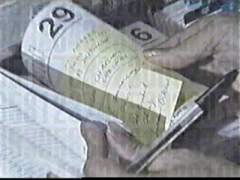 Before you leave your house, before you access personal information, you first have to go through the process of retrieving numbers and words out of your memory bank just to gain entry into your own life.
Before you leave your house, before you access personal information, you first have to go through the process of retrieving numbers and words out of your memory bank just to gain entry into your own life. 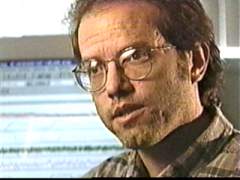 "There sure are!" said Cahill.
"There sure are!" said Cahill. 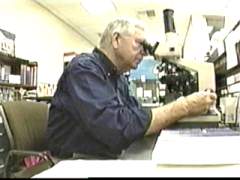 The payoff could be huge, especially for baby boomers who fear their memory is slipping.
The payoff could be huge, especially for baby boomers who fear their memory is slipping. 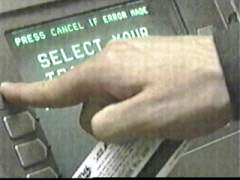 It's the mundane information -- facts and numbers -- that we need to remember to help us function and succeed in life.
It's the mundane information -- facts and numbers -- that we need to remember to help us function and succeed in life. 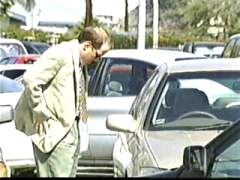 But what's a quicker way to take the burden off of memory?
But what's a quicker way to take the burden off of memory? 

